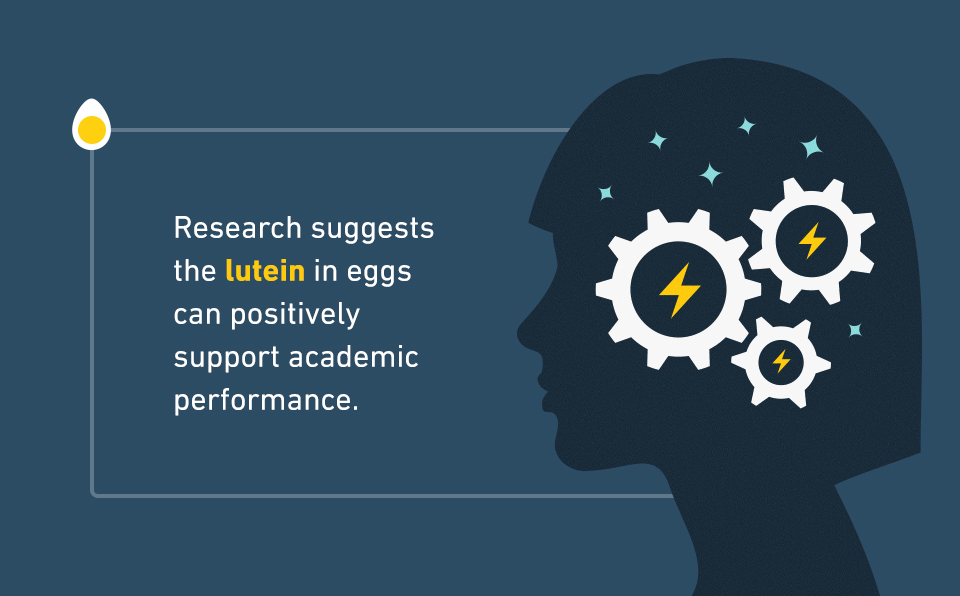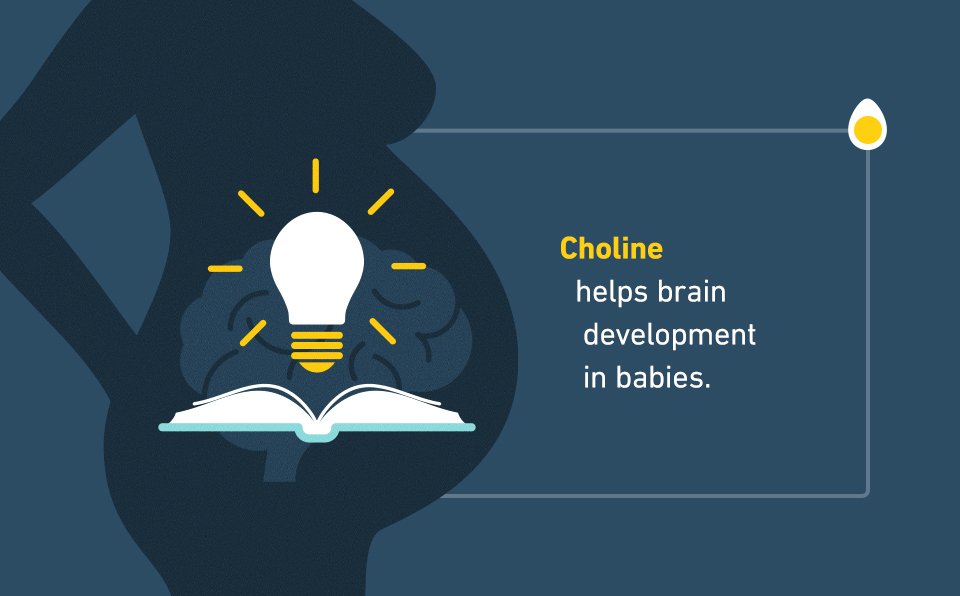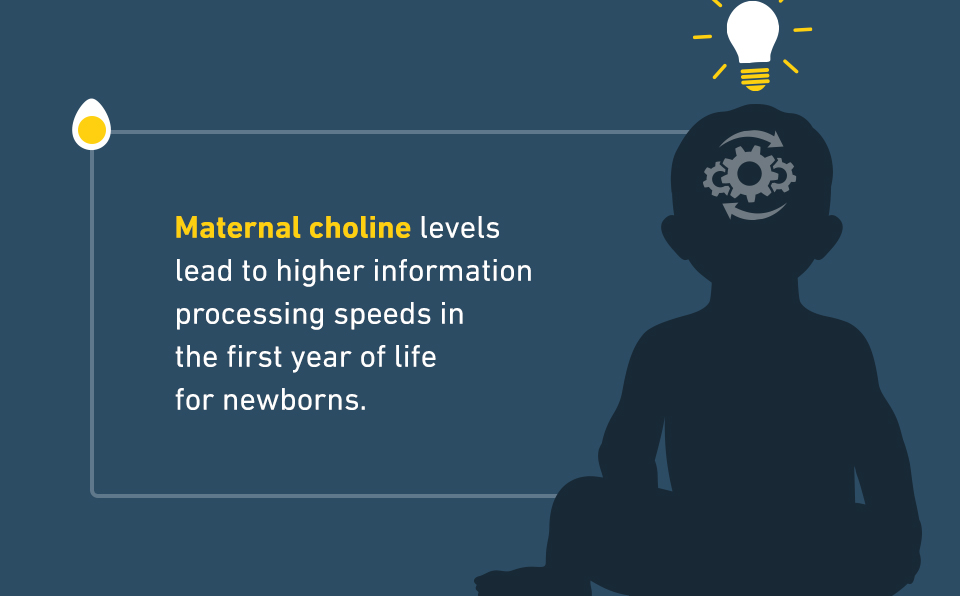
Research reveals how eggs support cognition
By Egg Farmers of CanadaCanadians know that eggs are a valuable source of high-quality protein, healthy fats and other nutrients like vitamins A, D, E, choline, and folate. A growing field of nutrition research is exploring the role eggs play in brain development, memory and learning. Here are three things to know about the positive effect eggs have on cognition:

Research suggests the lutein in eggs can positively support academic performance
Research has shown that lutein and zeaxanthin—two antioxidants found in eggs—are positively associated with cognition in older adults.1 But these antioxidants tend to be found in higher concentrations in infants, leading scientists to wonder: what effect do they have on the cognition of children?2
Researchers at the University of Illinois explored that question in two studies that looked at brain lutein and cognition in children. Brain lutein was measured in an eye test called Macular Pigment Optical Density (MPOD), and these researchers found that MPOD was positively associated with academic performance.3 These studies, according to the authors, are among the first linking lutein to cognitive performance in children.4

Choline helps brain development in babies
Choline, another nutrient found in eggs, plays a role in brain development and function.5 In 2017, the American Medical Association provided new advice on proper prenatal vitamin supplementation for pregnant mothers. In the words of the American Medical Association, “adequate levels of choline—an important nutrient that helps a baby’s brain and spinal cord to develop properly—are necessary to maintain normal pregnancy including neural development of the fetus and reducing the incidence of birth defects.”6
Health Canada recommends 425 mg of choline per day for women (19 years and older), higher intakes of 450 mg daily during pregnancy and 550 mg daily while breastfeeding.7 A 2014 study of women in Alberta found that few pregnant women and lactating mothers were meeting the recommendations for dietary choline, and women eating at least one egg per day were eight times more likely to meet choline intake recommendations.8
A 2015 study revealed that 87% of pregnant Canadian women had daily intakes of choline less than 450 mg. The study concluded that given the importance of choline in pregnancy, further research to consider including choline in prenatal supplements is warranted.9
Since a serving of two eggs offers 412 mg of choline, including eggs as part of a healthy eating pattern is a simple way for women to meet their choline requirements.
Maternal choline levels lead to higher information processing speeds in the first year of life for newborns
The benefits of choline for the brain start early—indeed, before children are even born. This has been explored in research conducted by Dr. Marie Caudill and colleagues at Cornell University. These researchers published evidence that infants exposed to higher levels of maternal choline during the third trimester have improved information processing speed during the first year of life.10 This is an indicator of cognition and intelligence.
Similar results were found in a University of British Columbia study of pregnant women in Vancouver. It found that maternal choline consumption in the first half of pregnancy was associated with higher cognitive test scores among infants, indicating greater cognitive development.11
There’s even more to discover when it comes to the connection between choline and brain health. Eggs are an excellent source of choline and offer many additional nutritional benefits. It’s one more reason why Canadians can feel good about the nutrition found in eggs for breakfast, lunch and dinner.
1 Egg Nutrition Center
2 Egg Nutrition Center
3 Egg Nutrition Center
4 Egg Nutrition Center
5 Harvard Medical School
6 American Medical Association
7 Health Canada
8 The British Journal of Nutrition
9 The Journal of Nutrition
10 Egg Nutrition Center
11 PLOS One
